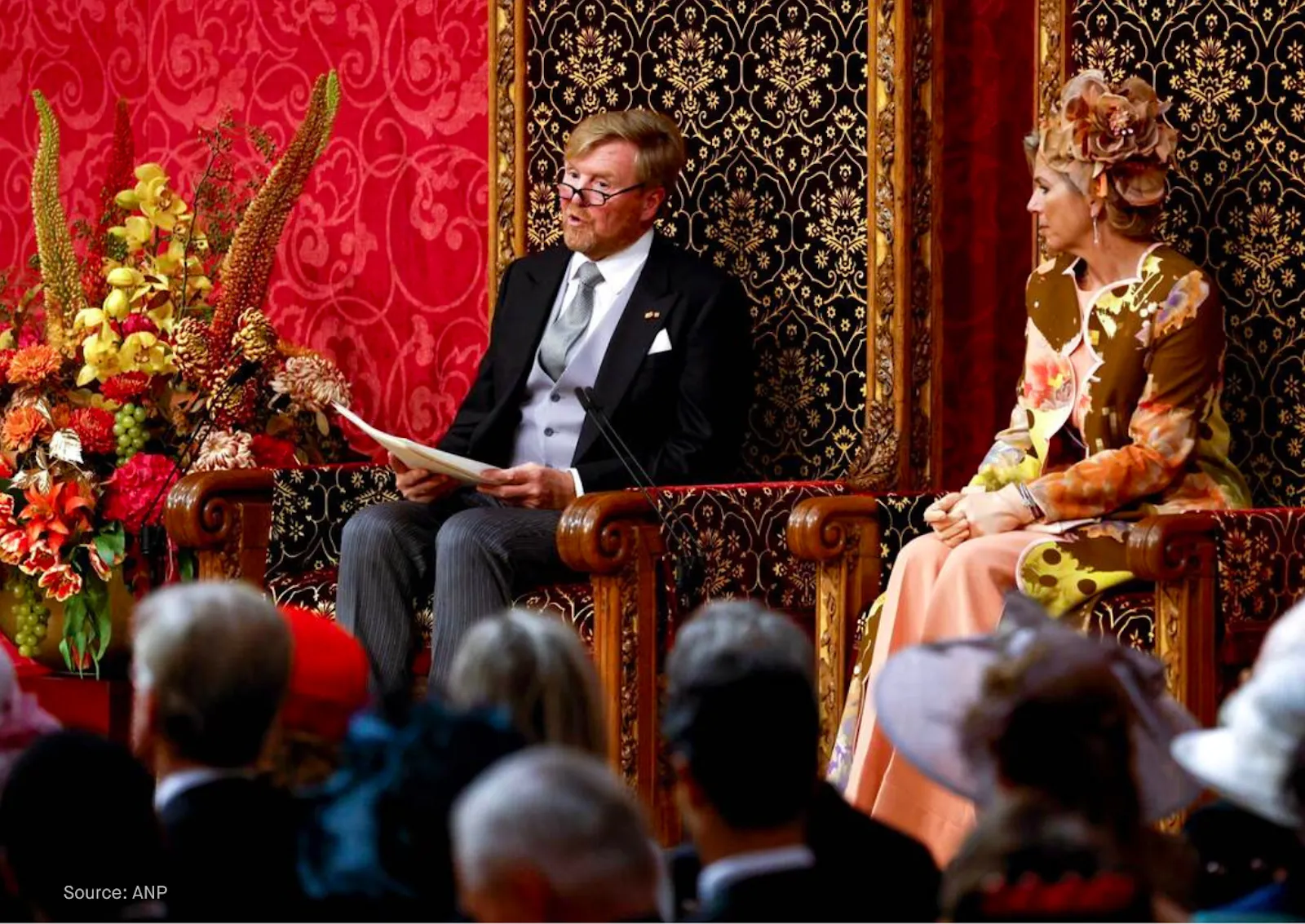March 25, 2024
Prinsjesdag 2023: Key takeaways from Budget Day for the Dutch startup and scaleup community

In the tenth annual throne speech, the king focused on protecting the ‘social fabric of our society’, requiring equality of opportunities, livelihood security and perspective. The king mentioned the importance of innovative Dutch businesses, laying the foundation for our prosperity. “Earning always comes before distributing”. Entrepreneurs provide the financial capabilities to address major social issues. The cabinet continues to strive for the most attractive business climate possible and continues to work on strengthening our innovative strength, competitive position and a predictable and stable (fiscal) policy. Briefly discussed were digitization and AI, which present both opportunities and risks.
In the budget proposal of the Ministry of Economic Affairs, there is a relatively large focus on the importance of startups and scaleups. The ministry calls the creativity and innovation power of startups and scaleups in the ecosystem the job engine of the future. By 2024, the government is committed to an innovative, sustainable, strong and prosperous economy with the highest possible broad prosperity from which everyone can benefit. As such, ‘broad welfare’ is a central concept in the Budget Memorandum (‘Miljoenennota’) as well as in the budget plans of various ministries.

 How To Hire and Retain International Talent as a Dutch Scaleup
How To Hire and Retain International Talent as a Dutch Scaleup